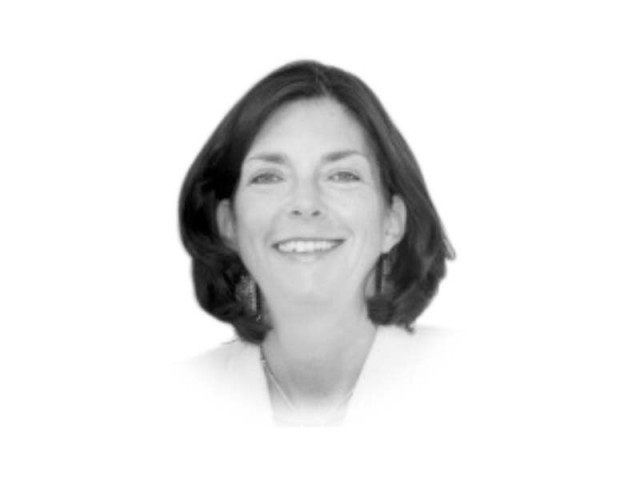Ending money laundering and terrorist financing in Pakistan
What do criminals do with their money?

The writer is Head of Department for International Development, Pakistan
The problem with money laundering is it is hard to catch; by appearing legitimate it becomes more difficult to track the criminal activity that generated the money. For example, criminals break up large amounts of cash into less conspicuous smaller sums as a way of avoiding suspicion. Once in the system, criminal funds are then ‘layered’ whereby the money undergoes a series of conversions or movements to distance it from its source. Ultimately, the money re-enters the legitimate economy through investments into real estate, luxury assets, or business ventures.
This is not just a complex problem but a big one: it is estimated that globally USD 1.6 trillion is laundered every year. It’s a problem that casts a shadow over good governance and legitimate business, costing Pakistan more than a hit to its GDP. It costs Pakistan in terms of its reputation as a good place to invest and do business.
Pakistan is taking action on a number of fronts. In December last year Pakistan joined the Open Government Partnership, a global effort to promote transparency, empower citizens, fight corruption, and harness new technologies to strengthen governance. With UK support, the Federal Board of Revenue has signed up to an OECD convention that will reduce international tax evasion and make ownership of complex company structures more transparent. UKAid is helping Pakistan to strengthen and automate the systems required by the Financial Action Task Force, an inter-governmental body established to set standards and promote effective implementation of measures to combat money laundering and terrorist financing.
In 2007, Pakistan’s Anti-Money Laundering Ordinance established the Financial Monitoring Unit, an autonomous body responsible for analysing suspicious transactions and currency transactions in Pakistan. By law, financial institutions are required to report to the Financial Monitoring Unit; the Unit then analyses the data to produce financial intelligence which can be passed on to law-enforcement agencies as evidence to prosecute. The Financial Monitoring Unit is also responsible for cooperating with financial intelligence units in other countries. As such it plays a decisive role in the detection and investigation of financial crimes both in Pakistan and across borders.
However, to function effectively, the Financial Monitoring Unit needs the right analytical tools and skills, which is where UKAid comes in. In 2014, working with the State Bank of Pakistan, the UK supported a proposal to establish a state of the art integrated data centre, providing the Financial Monitoring Unit with the necessary tools to analyse and interpret complex financial data. The technical implementing partner for this work was the United Nations Office on Drugs and Crime (UNODC). With our support the Financial Monitoring Unit is now able to identify many more suspicious transactions much more quickly.
This intervention comes at a time when the volume of suspicious transaction reports and currency transaction reports is on the rise; the number of currency reports crossed the million mark in 2014. There was therefore a critical need for more efficient software.
There is still much to be done to tackle the broader money laundering ecosystem. Last year the UK’s National Crime Agency partnered with the City of London Police to assess the needs of all relevant players, recommending an enhancement to the investigative skills at the Financial Monitoring Unit, and to support the Law Enforcement Agencies to make optimal use of financial evidence. So, as a mission, we hope to remain engaged in this critically important policy area.
At the end of last week, the Governor of the State Bank, Ashraf Mahmood Wathra, launched the new data centre with British High Commissioner Thomas Drew, in acknowledgment of its significant contribution to the Government’s commitment to tackle criminal activity. With its launch, the Financial Monitoring Unit is better placed to generate meaningful financial intelligence that identifies cases of money laundering and terrorist financing. In turn, the law-enforcement agencies are supplied with better evidence to enforce the law against criminals and terrorists.
So this data centre is not just ‘extra IT for the office’. It is a powerful tool to tackle money laundering and the financing of terrorism. It is also an important part of Pakistan’s efforts to demonstrate strong and transparent financial governance. UKAid support to the Financial Monitoring Unit sits alongside the UK’s leading role in the Open Government Partnership and our support to the Federal Board of Revenue to reduce tax evasion. Together these efforts will strengthen Pakistan’s economy, protect the interests of legitimate businesses, and improve Pakistan’s reputation as a well governed and good place to invest.
Published in The Express Tribune, February 15th, 2017.
Like Opinion & Editorial on Facebook, follow @ETOpEd on Twitter to receive all updates on all our daily pieces.














COMMENTS
Comments are moderated and generally will be posted if they are on-topic and not abusive.
For more information, please see our Comments FAQ